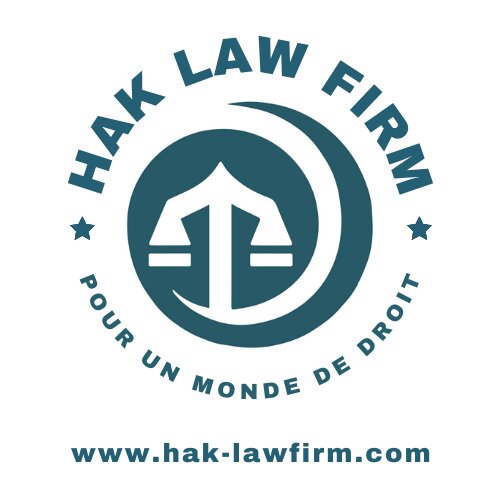Best Disability Lawyers in DR Congo
Share your needs with us, get contacted by law firms.
Free. Takes 2 min.
Or refine your search by selecting a city:
List of the best lawyers in DR Congo
About Disability Law in DR Congo:
Disability rights in DR Congo are protected by various laws and regulations that aim to guarantee equal opportunities and access for people with disabilities. These laws encompass aspects such as employment, education, healthcare, and social inclusion.
Why You May Need a Lawyer:
Legal assistance may be necessary in cases where a person with a disability faces discrimination, denial of rights, lack of access to services, or when their rights are violated. A lawyer can help navigate legal processes, advocate for rights, and ensure fair treatment.
Local Laws Overview:
In DR Congo, the Law on the Protection and Promotion of Persons with Disabilities outlines the rights of individuals with disabilities, including provisions for accessibility, employment, education, and social services. Additionally, the Constitution prohibits discrimination based on disability.
Frequently Asked Questions:
1. What types of disabilities are recognized under DR Congo's laws?
DR Congo's laws recognize a broad range of disabilities, including physical, sensory, intellectual, and mental health disabilities.
2. Can a person with a disability request reasonable accommodations in the workplace?
Yes, individuals with disabilities have the right to request reasonable accommodations in the workplace to ensure equal opportunities for employment.
3. Are there specific laws regarding accessibility for people with disabilities in public spaces?
Yes, DR Congo's laws mandate accessibility in public spaces to ensure individuals with disabilities can freely access services and participate in society.
4. What are the legal protections against discrimination based on disability?
Discrimination based on disability is prohibited by law in DR Congo, and individuals have the right to seek legal recourse if they experience discrimination.
5. How can someone with a disability access healthcare services in DR Congo?
People with disabilities have the right to accessible healthcare services, and legal assistance can be sought to ensure their rights are upheld.
6. Are there specific programs or services for children with disabilities in DR Congo?
DR Congo has programs and services aimed at supporting children with disabilities, including inclusive education and healthcare initiatives.
7. Can a person with a disability be denied access to education in DR Congo?
No, individuals with disabilities have the right to equal access to education, and legal support can be sought to address any denial of this right.
8. What legal options are available for individuals who face discrimination or rights violations due to their disability?
Legal options include filing a complaint with relevant authorities, seeking redress through the court system, or engaging a lawyer to advocate for rights.
9. How can someone with a disability advocate for their rights in DR Congo?
Advocacy efforts can involve engaging with disability rights organizations, seeking legal advice, and raising awareness about rights and issues affecting people with disabilities.
10. What support is available to individuals with disabilities in DR Congo?
Various governmental bodies, organizations, and resources exist to support individuals with disabilities in DR Congo, including those focused on advocacy, healthcare, education, and social services.
Additional Resources:
For additional information and support related to disability rights in DR Congo, individuals can contact the National Association of Persons with Disabilities (ANPD) or the Ministry of Social Affairs and National Solidarity.
Next Steps:
If you require legal assistance regarding disability rights in DR Congo, consider consulting with a qualified lawyer who specializes in this field. They can provide guidance on your rights, options for recourse, and support in advocating for fair treatment and access to services.
Lawzana helps you find the best lawyers and law firms in DR Congo through a curated and pre-screened list of qualified legal professionals. Our platform offers rankings and detailed profiles of attorneys and law firms, allowing you to compare based on practice areas, including Disability, experience, and client feedback.
Each profile includes a description of the firm's areas of practice, client reviews, team members and partners, year of establishment, spoken languages, office locations, contact information, social media presence, and any published articles or resources. Most firms on our platform speak English and are experienced in both local and international legal matters.
Get a quote from top-rated law firms in DR Congo — quickly, securely, and without unnecessary hassle.
Disclaimer:
The information provided on this page is for general informational purposes only and does not constitute legal advice. While we strive to ensure the accuracy and relevance of the content, legal information may change over time, and interpretations of the law can vary. You should always consult with a qualified legal professional for advice specific to your situation.
We disclaim all liability for actions taken or not taken based on the content of this page. If you believe any information is incorrect or outdated, please contact us, and we will review and update it where appropriate.
Browse disability law firms by city in DR Congo
Refine your search by selecting a city.












